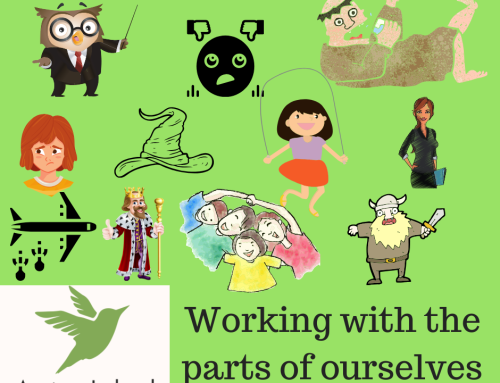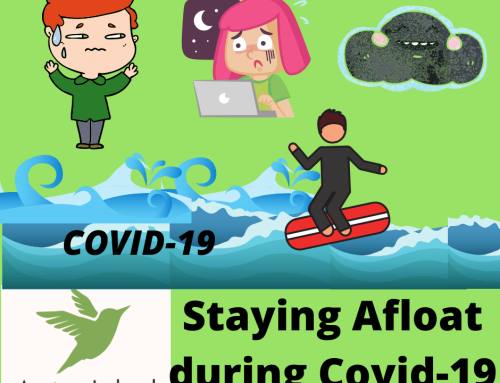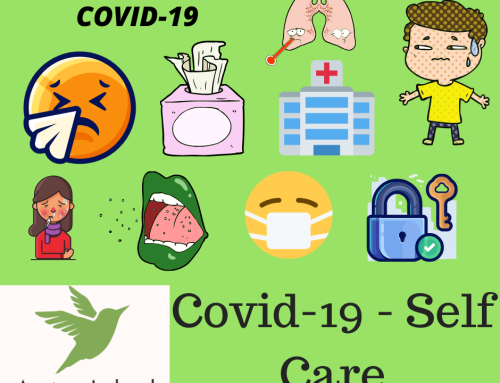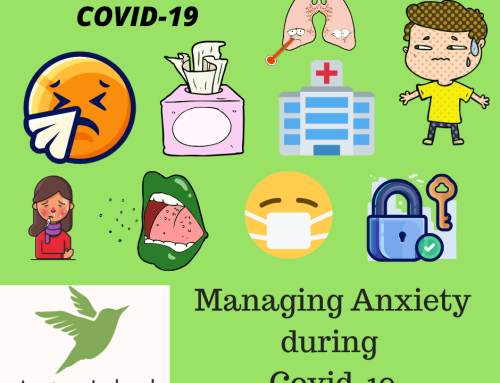Overgeneralization
In this blog post about overgeneralization we cover the third of the 15 styles of distorted thinking. Sound Familiar? “I’ll never ever find love”, “I am so so stupid, everything was perfect until I made that mistake”, “I can’t believe I said that, now that whole group hates me”, “The last person like this hurt me, they are not to be trusted”.
Overgeneralizing is a cognitive distortion that results in some pretty significant errors in thinking and has the potential to cause us a lot of unnecessary general anxiety. When we draw a faulty conclusion about something based on just one example, we are overgeneralizing. This can take many forms.
We may, for example, predict the outcome of something based on just one previous instance of it: after interviewing for a job and not getting it, we might overgeneralize by thinking we’ll never get a job, and as a result feel quite hopeless. Or after interacting with someone from a different ethnic group, we may make broad assumptions about that group based on this one person’s behaviour.
Overgeneralizing is ineffective mainly because it is usually highly inaccurate, and it is very limiting. Take another example: going out on a date and not being asked for a second date. Were we to use distorted thinking and overgeneralize, we may come to the conclusion that we will never successfully find a romantic partner; because I wasn’t asked on a second date, I will never be asked on a date again. If we really believe this, we might feel demoralized, and perhaps devastated.
Even worse, believing the distortion to be true, it would be unlikely that someone would put forth any effort toward achieving a goal of romance. We might stop chatting casually with people we don’t know, delete our dating site profiles, or even turn down future invitations of dates. Then the prediction would turn out to be true!
Overgeneralization;
One slipped stitch means ‘I’ll never learn how to sew’. A rejection on the dance floor means ‘Nobody would ever want to dance with me’. If we got sick on a train once, we say we’ll never take a train again. If we got dizzy on a sixth floor balcony, never go up there again. If we felt anxious the last time our husband took a business trip, we’ll be a wreck every time he leaves town. One bad experience means that whenever we’re in a similar situation we will repeat the bad experiences.
This distortion inevitably leads to a more and more restricted life. Overgeneralizations are often couched in the form of absolute statements, as if there were some immutable law that governs and limits our chances for happiness. We are overgeneralizing when we absolutely conclude that ‘Nobody loves me …. I’ll never be able to trust anyone again … I will always be sad … I could never get a better job … No one would stay my friend if they really knew me’.
We overgeneralize if our conclusion is based on one or two pieces of evidence and carefully ignore everything we know about to the contrary. Key words that indicate we may be overgeneralizing are all, every, none, never, always, everybody, and nobody. This is really bad for us as it creates general anxiety, social anxiety, panic attacks and may make PTSD, OCD and Phobias worse!
Overgeneralization comeback Quantify Evidence for conclusions?
There are no absolutes.
Overgeneralization is simply the tendency to exaggerate, the propensity to take a button and sew a vest on it. We can fight this tendency by quantifying instead of using words like huge, awful, massive, miniscule, etc. Moreover, we can examine how much evidence we really have for our conclusion. If the conclusion is based on one or two cases, a single mistake, or one small symptom, then throw it out till there is more convincing proof. Use this variant of the three column technique to tally your evidence:
Evidence for Evidence against Alternative
my conclusion my conclusion conclusion
If we overgeneralize we think in absolutes. We should therefore avoid statements and assumptions that require the use of words such as every, all, always, none, never, everybody, and nobody. Thoughts and statements that include these words ignore the exceptions and shades of grey. To become more flexible, use instead words such as may, sometimes, and often. Be particularly sensitive to absolute predictions about the future such as, ‘No one will ever love me’. Again they are extremely dangerous because they can become self-fulfilling prophecies and are a tonic for our anxiety.
Overgeneralizing is one of 15 common types of distorted thinking. In our next blog we will be discussing Mind Reading.
Other Distorted Thinking styles are also extremely important for how we deal with and suffer from anxiety. Distorted thinking styles include: Filtering, Polarized Thinking, Over-generalization, Mind Reading, Catastraphizing, Personalization, Control Fallacies, The Fallacy of Fairness, Emotional Reasoning, The Fallacy of Change, Global Labeling, Blaming, Shoulds, Being Right and Heaven’s Rewards Fallacy.
If there is ever a need help with severe anxiety, please do remember Anxiety Ireland is there to chat on the phone or to link people up with one of our counsellors to get anxiety help.
If unsure on anxiety, take our anxiety quiz.
Take care,
Team Anxiety Ireland
1800 222 833
info@abatecounselling.com
PM us on Facebook.




